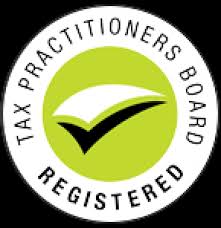Your business is thriving, and you’re seeing all your hard work finally come to fruition. Your customers are happy, which makes you even happier. Keeping them happy is your objective, and as of right now your business is in the right place to do just that.
With the end of the fiscal year fast approaching, you need to ensure that all of that customer happiness is translating to a happy balance sheet. Since you’ve been busy managing inventory and sales, you’ll be in need of someone who can be trusted with your business’ finances (that is, if you haven’t yet already found that someone). When you’re having your books managed, you are given options. There are bookkeepers, and there are registered BAS agents. Each option has its benefits, and each differs slightly. Whichever you choose to use will directly impact your business in a positive way. It just depends on your needs. In this post, we’ll examine bookkeepers and BAS agents and determine exactly what the difference between the two really is.
Bookkeepers
Chances are very good that you’ve used a bookkeeper for your business needs already. If you have put someone else in charge of your accounting, then you’ve employed a bookkeeper. Your everyday bookkeeper will be someone with whom you’ve put your financial trust. They ensure that your books are balanced throughout each quarter and at year-end. They’re able to process, reconcile, and report transactions. Usually, they’ll use accounting software such as Xero or Quickbooks to simplify their day to day accounting activities. Whatever software they choose, they become proficient. This proficiency comes in handy when year-end comes around since it’s then that your numbers need to be spot on. If your bookkeeper has been on top of the numbers, your accountant will have less work to do.
BAS Agents
Registered BAS Agents are able to handle all of the bookkeeping responsibilities while flying a particularly important flag of differentiation. BAS agents require proper schooling and qualifications in order to use that title. Also, the title of BAS agent is protected. There are guidelines and rules that registered BAS agents need to follow.
Similarities
Bookkeepers and BAS Agents typically handle the same kinds of activities. They report on the state of your business’ finances while ensuring the books are balanced appropriately. Both are able to prepare financial statements, help with the lodgement of BAS and IAS returns, prepare internal reports, and accumulate financial information for businesses. They are essential to your daily accounting activities. Both bookkeepers and BAS agents are able to interpret the financial situations of their business and help you, the owner, make business decisions based on their conclusions. Their work helps you know if your business is succeeding or if it requires taking a new direction in order to get back on track.
One similarity between bookkeepers and BAS agents is the amount of schooling required to be a great accountant for a business. Both bookkeepers and registered BAS agents typically require a bachelor’s degree in accounting or need to have obtained or be working toward CA or CPA qualifications. In Australia’s current business climate, having these qualifications is important.
Differences
 While anyone can call themselves a bookkeeper or an accountant, not everyone can call themselves a registered BAS agent. Bookkeepers handle a few tasks while BAS agents are able to carry a heavier load. BAS agents provide their employer with much more clout when it comes to the ATO than bookkeepers do. Bookkeepers are employed to look after the books and that’s pretty much it. They’re also able to do many things related to business finances. Registered BAS agents, however, are able to represent, advise, or assist their employer with certain matters – things bookkeepers are not allowed to do. These include GST, wine taxes, fuel taxes, luxury car taxes, FBT payments, all aspects of payroll relating to withholding tax amounts and reporting those amounts to the Tax office, any other PAYG withholding amounts, and all aspects of income tax payments via PAYG instalments. If your business requires representation from the Tax office on these matters, a BAS agent is required. Bookkeepers simply won’t do.
While anyone can call themselves a bookkeeper or an accountant, not everyone can call themselves a registered BAS agent. Bookkeepers handle a few tasks while BAS agents are able to carry a heavier load. BAS agents provide their employer with much more clout when it comes to the ATO than bookkeepers do. Bookkeepers are employed to look after the books and that’s pretty much it. They’re also able to do many things related to business finances. Registered BAS agents, however, are able to represent, advise, or assist their employer with certain matters – things bookkeepers are not allowed to do. These include GST, wine taxes, fuel taxes, luxury car taxes, FBT payments, all aspects of payroll relating to withholding tax amounts and reporting those amounts to the Tax office, any other PAYG withholding amounts, and all aspects of income tax payments via PAYG instalments. If your business requires representation from the Tax office on these matters, a BAS agent is required. Bookkeepers simply won’t do.
Your business needs efficient accounting and representation. While there are some similarities between bookkeepers and BAS agents, the differences between the two make it obvious that investing in a BAS agent is a good call. Registered BAS agents tend to cost a little more, but they are worth it in the long run for sure.
If you are in need of information on registered BAS agents – or are in need of quality accounting from one – then don’t hesitate to contact Darcy Bookkeeping. We’d be happy to help you with any and all of your accounting needs.